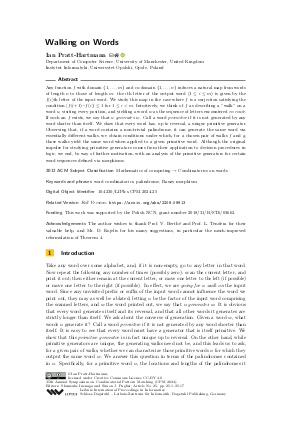LIPIcs.CPM.2024.25.pdf
- Filesize: 0.75 MB
- 17 pages

 Creative Commons Attribution 4.0 International license
Creative Commons Attribution 4.0 International license






Feedback for Dagstuhl Publishing